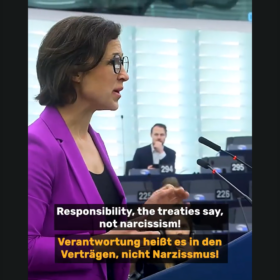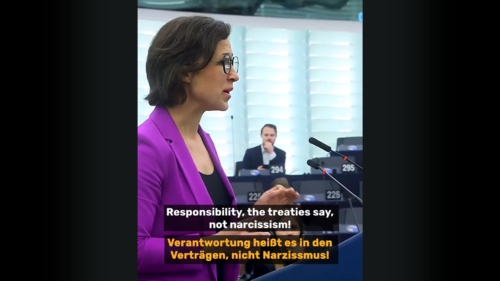An “improper” hijab: That is why the young Kurdish woman Jina Mahsa Amini was killed in Iran. She succumbed to her severe injuries on September 16th, three days after having been arrested and brutally beaten by the country’s so-called “morality police”. The headscarf is required by law for women in Iran – they are forced to wear it. The “morality police” arbitrarily picks out women who, in their opinion, interpret this regulation too liberally. Jina Mahsa Amini is therefore unfortunately not an isolated case.
Since the death of the 22-year-old, protests are held day and night in Iran. Iranian women are upset about her cruel fate, take to the streets in protest, burn their headscarves and symbolically cut off their hair. Many men are also demonstrating for women’s rights. The protesters are exposed to violence and arrests by the Iranian police and many have already been killed. People around the world are currently demonstrating for the basic rights of Iranian women. I also went to a protest in Berlin.
“Keiner bringt Frauen mehr zum Schweigen. Wenn sie Eine schlagen, sprechen 10 umso lauter.”
Kommt morgen 17:00 zur Demo am Brandenburger Tor.#Iran #JinaMahsaAmini #MahsaAminii pic.twitter.com/3uTEYXLfi6
— Hannah Neumann (@HNeumannMEP) September 27, 2022
#MahsaAmini wurde nur 22 Jahre alt. Mutige Iraner*innen protestieren nach ihrem Tod überall im Land – und riskieren ihr Leben.
Als #EU müssen wir ebenfalls Flagge zeigen: Für die kommende Woche haben @GreensEFA eine #Plenardebatte zum Thema beantragt. #Iran #مهسا_امینی pic.twitter.com/1xjwkEWUbF
— Hannah Neumann (@HNeumannMEP) September 26, 2022
In addition to the death of Jina Mahsa Amini and the discrimination against Iranian women, there are more reasons for the discontent of Iranians: The economic situation is miserable in view of the sanctions in place and the consequences of the pandemic. Environmental destruction is causing more and more problems in the country – and the fact that Jina Mahsa Amini was a Kurdish woman certainly also plays a role. After all, Kurds have for decades been systematically oppressed in the country. Furthermore, people from the LGBTQI+ community are in particular danger. For example, Zahra Sedighi-Hamadani, known as Sareh, was recently sentenced to death due to sexual orientation and peaceful advocacy for LGBTQI+ rights.
The EU must take measures
The EU must now clearly stand against the Iranian regime and show solidarity with Iranians. In the European Parliament, a plenary debate on the issue took place this week, which we as Greens had requested. In a resolution , the European Parliament demands:
- The EU must impose targeted sanctions against those leaders of the regime as well as members of the so-called “morality police” who are responsible for Jina Mahsa Amini’s death and the violence against demonstrators.
- The EU should review whether existing sanctions can be eased in a way that allows EU providers to give protesters access to certain online tools and platforms. The Iranian government has temporarily blocked the internet to weaken the protest movement. Therefore, access to European services could help.
- To support Human Rights Defenders in Iran, the EU and its member states should strengthen their protective measures. For example, it can use the mechanisms provided in the EU Guidelines on Human Rights Defenders, especially to protect women’s rights defenders and EU dual nationals. These measures include, among others, emergency grants, emergency visas, and prison visits by officials to detainees.
Simultaneous protests in Afghanistan
The protests in Iran coincide with protests in Afghanistan. Since the Taliban took power about a year ago, women and girls have been systematically oppressed and excluded from social life. Contrary to the announcements of the new regime, girls are no longer allowed to attend school and women are denied access to work. For more than a year now, brave Afghans have been standing up to the Taliban and demonstrating for their basic rights.In an attack on a private school in Kabul a few days ago, many students were injured and killed, girls in particular. Since then, women have once again been out on the streets demanding their and their daughters’ right to education.
We must not leave Afghans and Iranians alone. #BeTheirVoice is one of the hashtags that has gone viral since the protests in Iran began: Because the regime in Iran and the Taliban in Afghanistan are trying to silence the voices of protesters, we need to amplify them even more!
Watch here my speech in the European Parliament Human Rights Subcommittee:
You are currently viewing a placeholder content from Youtube. To access the actual content, click the button below. Please note that doing so will share data with third-party providers.
More Information











